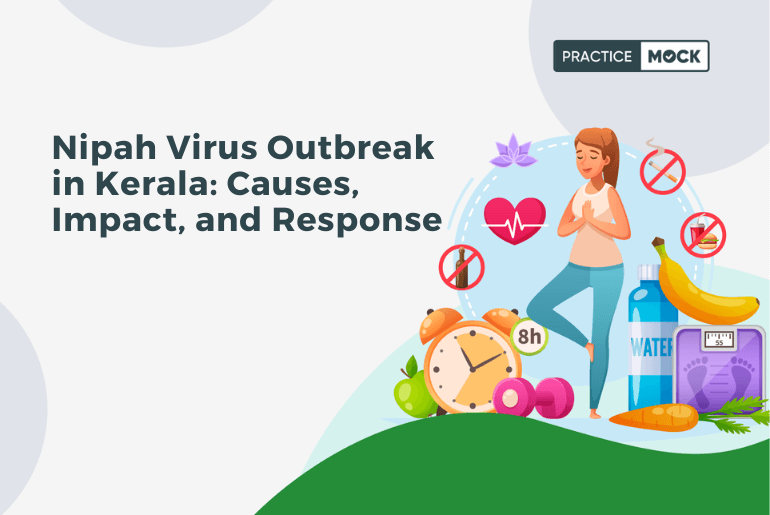The Nipah virus outbreak in Kerala, a southern state of India, has once again brought to light the dangers posed by emerging infectious diseases. The Nipah virus is zoonotic, meaning it primarily infects animals but can be transmitted to humans, causing severe illness and even fatalities. The outbreak in Kerala is thought to have originated from fruit bats, particularly the Indian Flying Fox, which are natural hosts of the virus. Humans can contract the virus through direct contact with infected bats or through consuming fruits or raw date palm sap contaminated by bat saliva or urine.
The Impact of the Outbreak on Public Health
The Nipah virus outbreak in Kerala has had a profound impact on public health and the affected communities. The virus is known for its high fatality rate, which is estimated to be around 40-75%. The impact is not only limited to the loss of lives but also includes the strain on healthcare facilities, economic disruptions, and a state of fear and panic among the general population. Health authorities have been working tirelessly to contain the spread of the virus, trace and isolate contacts, and provide necessary medical care to those affected. Furthermore, awareness campaigns have been initiated to educate the public on preventive measures.
Government and Health Authorities Response
The response to the Nipah virus outbreak in Kerala has been swift and coordinated. The state health department, along with national health agencies, has been actively monitoring the situation and implementing control measures. Immediate steps were taken to isolate and treat the infected individuals, trace and monitor their contacts, and conduct extensive testing to confirm cases. Quarantine measures have been put in place to prevent further transmission, and hospitals are equipped to handle the cases effectively.
Preventive Measures and Awareness Campaigns
Prevention plays a vital role in managing the Nipah virus outbreak. Health authorities have disseminated guidelines and information to the public on how to reduce the risk of exposure to the virus. This includes avoiding direct contact with bats or their excretions, not consuming raw date palm sap, thoroughly washing fruits before consumption, and using personal protective equipment when handling infected individuals. Additionally, awareness campaigns through various media outlets are being carried out to educate people about the virus, its transmission, and preventive practices.
Global Collaboration and Preparedness for Future Outbreaks
The Nipah virus outbreak in Kerala highlights the importance of global collaboration and preparedness for emerging infectious diseases. The international scientific community, along with organizations like the World Health Organization (WHO), is closely monitoring the situation and providing guidance to affected regions. Research efforts are underway to better understand the virus, develop potential treatments, and enhance surveillance and early detection mechanisms to effectively respond to future outbreaks.
Conclusion
The Nipah virus outbreak in Kerala serves as a stark reminder of the ongoing threat posed by emerging infectious diseases. Timely response, effective containment measures, community awareness, and global collaboration are key aspects in managing such outbreaks. Strengthening healthcare systems, investing in research, and educating the public are vital components in mitigating the impact of diseases like the Nipah virus and enhancing overall public health resilience.
- Sign Up on Practicemock for Updated Current Affairs, Free Topic Tests and Free Mini Mocks
- Sign Up Here to Download Free Study Material
Free Mock Tests for the Upcoming Exams
- RRB PO 2024 Free Mock Test
- RRB Clerk 2024 Free Mock Test
- SSC MTS Free Mock Test
- SSC CHSL Free Mock Test
- SSC CGL Free Mock Test
- GATE Mechanical Free Mock Test
- GATE Civil Free Mock Test
- NABARD Gr. A Free Mock Test
- SBI Clerk Mains Free Mock Test
- SSC CPO Free Mock Test
- AFCAT Free Mock Test
- CAT Free Mock Test
- NIACL Assistant Free Mock Test
- UIIC AO Free Mock Test
- UIIC Assistant Free Mock Test
- GIC Assistant Manager Free Mock Test
- NICL AO Free Mock Test
- Free SSC Live Test
- UPSC CSAT Free Mock Test
- CDS-I Free Mock Test
- RRB ALP Free Mock Test


